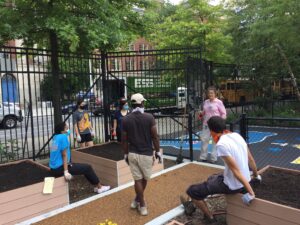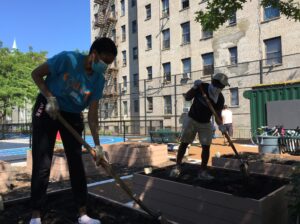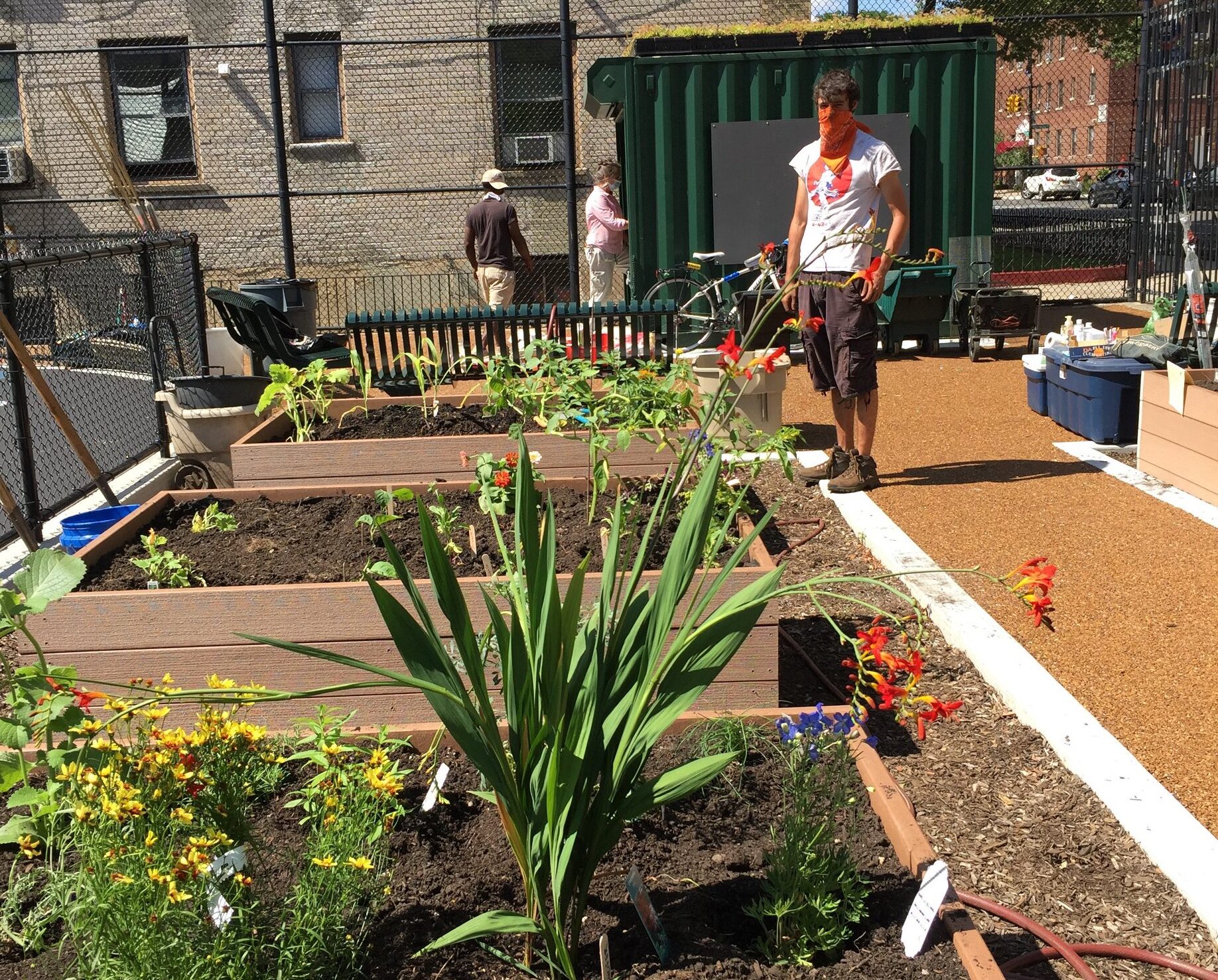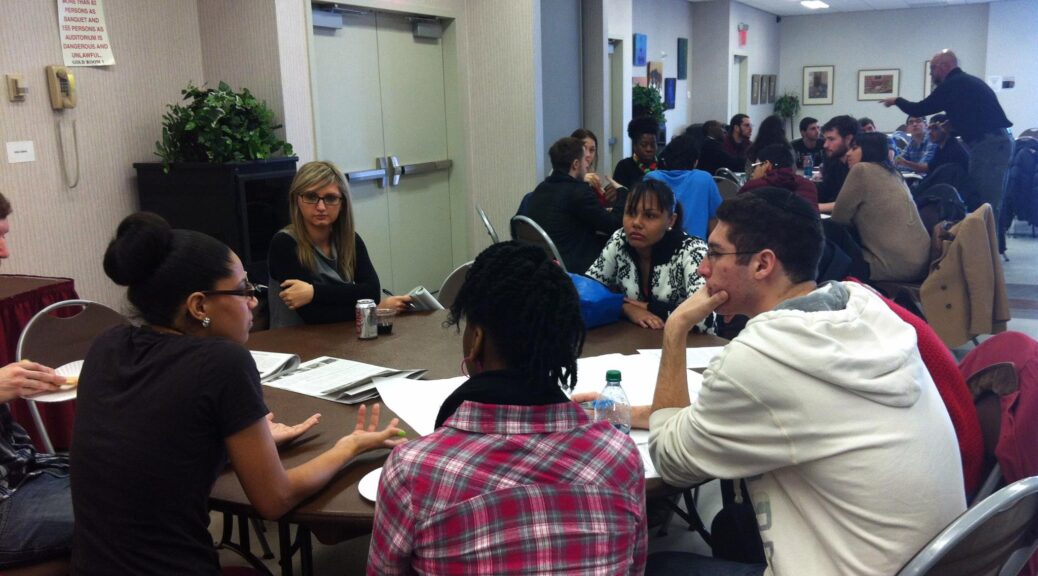The BC Food and Resilience Gardens Hub (launching July 2020) aims to promote and interconnect school and community gardens and gardeners with Brooklyn College faculty, staff, and students to conduct research and support projects that promote food sovereignty and socio-ecological resilience in Midwood/Flatbush and other neighborhoods across Brooklyn. The Hub would be hosted by the Urban Sustainability Studies Program at BC and draw upon a range of faculty through the Center for the Study of Brooklyn (also at BC).
The Hub would have four functions:
- To coordinate and support the growing of food for local consumption including food pantries for residents and students in response to the COVID emergency and long standing food insecurity issues among students and central and south Brooklyn communities.
- To support the new School-Community garden in Midwood at PS 152/315 and other school and community gardens to provide support for learning opportunities among K-12 and college students (building upon existing Community Roots program hosted by BC College Now).
- To lead and support gardening efforts on the BC campus for teaching and research with students, faculty and community partners for food provision as well as climate resilience including stormwater management, carbon sequestration, biodiversity promotion and urban soil management.
- To research, innovate participatory, and teach democratic practices and economic democracy models not just for gardening but for other parts of the food system (transport, sale, etc.) including worker and consumer coops and participatory budgeting (PB) and to connect to city government through community boards, PB NYC and the NYC Civic Engagement Commission.
While face-to-face interactions are limited, a small number of internship opportunities, using socially distanced outdoor training, will be pursued for summer and fall. Also, there will be a a special focus on reaching across the digital divide and teaching and training diverse students and community members to use participatory democractic digital platforms for project management (e.g. Airtable), collaborative decision-making (e.g. Loomio), in depth and interactive surveys (e.g. pol.is), and proposal generation (e.g. Decidim) among other needs and uses.

On-Campus Partnerships
This project builds on existing projects, centers, and institutes at BC including the greenhouse operated by the Aquatic Research and Environmental Assessment Center (AREAC), Environmental Sciences Analytical Center (ESAC), Urban Soils Lab, Legacy Lead Coalition, and the Science and Resilience Institute at Jamaica Bay. The Hub will enhance existing partnerships with departments and programs across the campus including Earth and Environmental Sciences, Health and Nutrition Sciences, Sociology, Philosophy, Business Management, Economics, and Caribbean Studies among others.
Off-Campus Partnerships
The Hub working with the Center for the Study of Brooklyn will establish and/or enhance partnerships with off campus organizations such as the PS 152/315 Schoolyard Working Group, Bed Stuy Restoration, Canarsie Alliance, Canarsie Community Development Initiative, and the Flatbush Food Pantry as well as various civics and community boards especially in Flatbush, Canarsie and Midwood. It will also work to build out the recent partnerships with Community Care of Brooklyn and Brooklyn Communities Collaborative’s work on public health and economic democracy (BC is an “anchor” institution in this network). Private sector partners will also be sought, for example for landscaping and landscape architecture with firms such as Local Office for Landscape Architecture (who is already permitted to work at CUNY).





